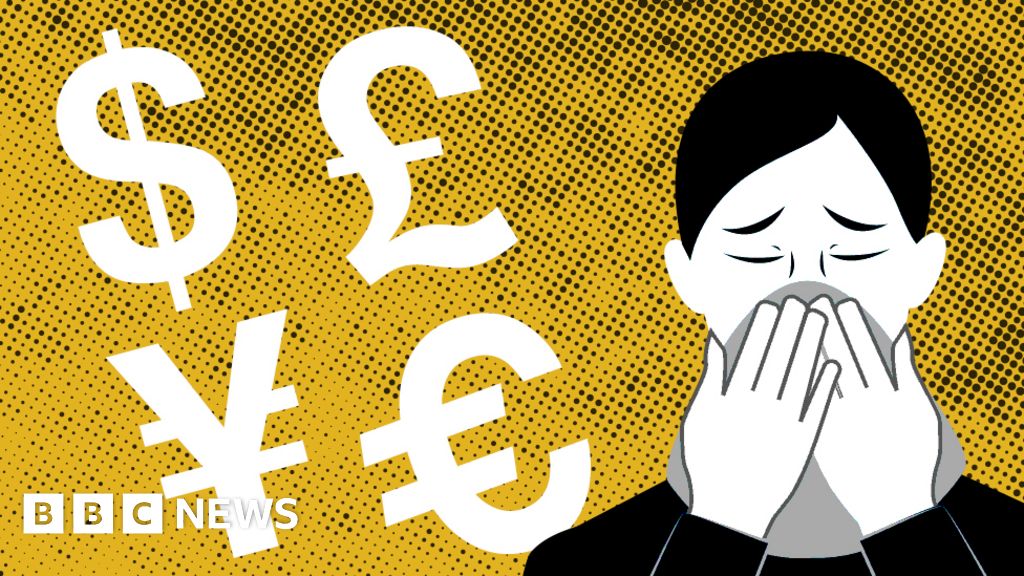Coronavirus: A Visual Guide To The Economic Impact


The coronavirus outbreak, which originated in China, has infected more than 200,000 people. Its spread has left businesses around the world counting costs.
Here is a selection of maps and charts to help you understand the economic impact of the virus so far.
Global shares take a hit
Big shifts in stock markets, where shares in companies are bought and sold, can affect many investments in pensions or individual savings accounts (ISAs).
The FTSE, Dow Jones Industrial Average and the Nikkei have all seen huge falls since the outbreak began on 31 December.
The Dow and the FTSE have seen their biggest one day declines since 1987.
Investors fear the spread of the coronavirus will destroy economic growth and that government action may not be enough to stop the decline.
In response, central banks in many countries have cut interest rates.
That should, in theory, make borrowing cheaper and encourage spending to boost the economy.
The US Federal Reserve and the Bank of England are among those to slash interest rates.
Travel among hardest hit
The travel industry has been badly damaged, with airlines cutting flights and tourists cancelling business trips and holidays.
Governments around the world have introduced travel restrictions to try to contain the virus.
The EU is banning travellers from outside the bloc for 30 days in an unprecedented move to seal its borders because of the coronavirus crisis.
The analytics firm ForwardKeys has estimated that up to 48,200 flights with 10.2 million seats could be affected by the ban, with the biggest impact falling on Air France.
In the US, the Trump administration has banned travellers from European airports from entering the US.
UK travel industry experts have expressed concerns about Chinese tourists being kept at home. There were 415,000 visits from China to the UK in the 12 months to September 2019, according to VisitBritain. Chinese travellers also spend three times more on an average visit to the UK at £1,680 each.
Customers buying less
Fear of the virus and government advice to stay at home is also having a devastating impact on hotels and restaurants.
Factories in China slowed down
In China, where the coronavirus first appeared, industrial production, sales and investment all fell in the first two months of the year, compared with the same period in 2019.
China makes up a third of manufacturing globally, and is the world's largest exporter of goods.
China's industrial slowdown has even been visible from space.
Nasa said pollution-monitoring satellites had detected a significant drop in nitrogen dioxide over the country. Evidence suggests that's "at least partly" due to the economic slowdown caused by the outbreak.
Restrictions have affected the supply chains of big companies such as industrial equipment manufacturer JCB and carmaker Nissan.
Shops and car dealerships have all reported a fall in demand.
Chinese car sales, for example, dropped by 92% during the first half of February. More carmakers, like Tesla or Geely, are now selling cars online as customers stay away from showrooms.
Even 'safer' investments hit
When a crisis hits, investors often choose less risky investments.
Gold is traditionally considered a "safe haven" for investment in times of uncertainty.
Until March the price of gold increased. But now, with investors increasingly fearful about a global recession, even the price of gold has tumbled.
Likewise, oil has slumped to its lowest price since June 2001.
Investors fear that the global spread of the virus will further hit the global economy and demand for oil.
The oil price had already been affected by a row between Opec, the group of oil producers, and Russia. Coronavirus has driven the price down further.
Growth could stagnate
If the economy is growing, that generally means more wealth and more new jobs.
It's measured by looking at the percentage change in gross domestic product, or the value of goods and services produced, typically over three months or a year.
The world's economy could grow at its slowest rate since 2009 this year due to the coronavirus outbreak, according to the Organisation for Economic Cooperation and Development (OECD).
The think tank has forecast growth of just 2.4% in 2020, down from 2.9% in November.
It also said that a "longer lasting and more intensive" outbreak could halve growth to 1.5% in 2020 as factories suspend their activity and workers stay at home to try to contain the virus.
From Chip War To Cloud War: The Next Frontier In Global Tech Competition
The global chip war, characterized by intense competition among nations and corporations for supremacy in semiconductor ... Read more
The High Stakes Of Tech Regulation: Security Risks And Market Dynamics
The influence of tech giants in the global economy continues to grow, raising crucial questions about how to balance sec... Read more
The Tyranny Of Instagram Interiors: Why It's Time To Break Free From Algorithm-Driven Aesthetics
Instagram has become a dominant force in shaping interior design trends, offering a seemingly endless stream of inspirat... Read more
The Data Crunch In AI: Strategies For Sustainability
Exploring solutions to the imminent exhaustion of internet data for AI training.As the artificial intelligence (AI) indu... Read more
Google Abandons Four-Year Effort To Remove Cookies From Chrome Browser
After four years of dedicated effort, Google has decided to abandon its plan to remove third-party cookies from its Chro... Read more
LinkedIn Embraces AI And Gamification To Drive User Engagement And Revenue
In an effort to tackle slowing revenue growth and enhance user engagement, LinkedIn is turning to artificial intelligenc... Read more

